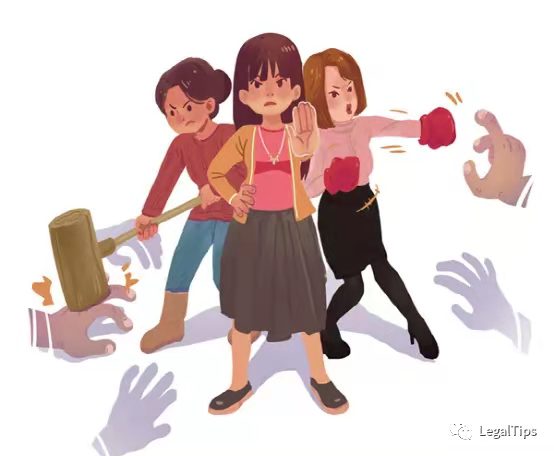November 25th of each year is International Day against Domestic Violence (the International Day for the Elimination of Domestic Violence), what are the protections that Chinese laws provide against domestic violence?
The Law of the People’s Republic of China against Domestic Violence, came into effect on March 1, 2016.
The Civil Code of the People’s Republic of China, came into effect on January 1, 2021.
1. What is domestic violence?
There are four types of domestic violence: physical, sexual, mental and economic control.
(1) Physical violence is an act that causes fear in the victim by beating or tying the victim, or restricting the victim’s personal freedom;
(2) Sexual violence is sexual assault by the perpetrator forcing the victim to accept sexual acts in a manner that he or she feels humiliated, fearful and resistant to, or maiming the victim’s sexual organs;
(3) Mental violence means mental torture by means of insults, verbal abuse, or neglect, refusing to divorce, etc., causing the victim to suffer humiliation, fear, sense of worthlessness, etc.
(4) Economic control means any act that destroys the victim’s self-esteem, confidence and/or sense of self-worth through the strict control of the joint property and family income and expenditures of the victim, in an effort to control the victim.
2. What are the legal consequences for domestic violence?
1) Civil liability. Under the new Marriage law, domestic violence is one of the statutory grounds for divorce, and the victim could claim civil liability for damages from the perpetrator.
2) Administrative liability. According to the Law of the People’s Republic of China on Administrative Penalties for Public Security, any person who abuses a family member shall be detained for not more than five days or be given a warning.
3) Criminal responsibility. Serious domestic violence will constitute the crime of violent interference in the freedom of marriage, abuse, intentional injury, intentional homicide, insult and other crimes in criminal law.

3. What should a victim of domestic violence do?
(1) Dial 110 to call the police for help, the acknowledgment from the police shall be kept and, if necessary, the police may be required to issue a domestic violence warning.
(2) Timely medical treatment or identification of injuries. Properly retain medical records and files, etc., or visit an injury identification institution and retain the identification certificates.
(3) Apply to the court for a protection order.
4. What is a Protection Order?
Victims of domestic violence and those facing a real threat of domestic violence may apply with a local court for a Protection Order. Protection Orders do not need to be connected to a pending case, but are independent standing rulings that may offer some level of protection for up to 6 months.
Rulings on whether to grant a protection order are to be made within 72 hours—or within 24 hours in emergency situations and may include:
(1) Prohibitions on further abuse;
(2) Prohibitions on the offender harassing, following, or having contact with the applicant or their close family;
(3) Orders that the offender move out of the applicant’s residence;
(4) Other measures for the protection of the applicants’ personal safety

